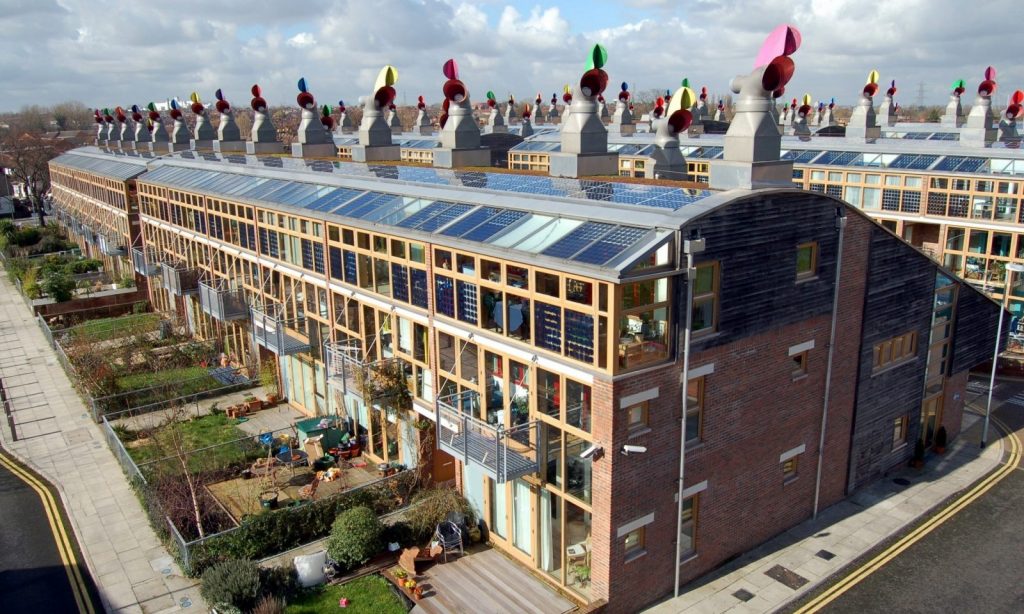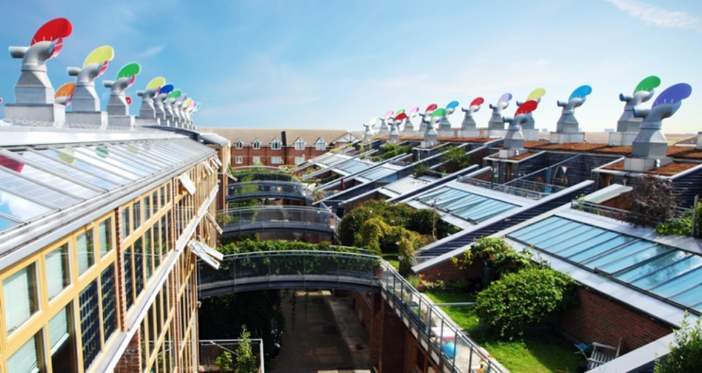Sustainability has become the focus of some developers throughout the past years, with many projects being proposed and some even being actually built. However, are people practically ready for the change?
Building sustainable homes isn’t as easy and quick as building homes with concrete and other harmful materials. Different techniques are needed in order to build a well-structured home with recycled materials and sourcing those has also been a struggle for developers as they aren’t available in great mass as other materials are, therefore come at a high cost. Hence why many developers give up before even trying.
Despite the struggles, some projects have been completed around England and those have attracted a lot of attention for their look, design and for being good for the environment.
The Beddington Zero Energy Development (BedZED) in South London was the first urban eco-village to be built on a larger scale in the UK back in 2002. With 100 homes, offices, a college and community facilities, this project is one of the largest examples that although building sustainably is difficult, the benefits are immense.
So if BedZED has been so successful, why aren’t we seeing every new home being built sustainably? We know cost is the cause so may be the focus should be on driving that cost down from the top. Even capping costs to stimulate the growth.
Labour costs we know are also high as the techniques and equipment used to build homes with those materials vary, which demands a premium, resulting in an even bigger bill for the developers.
The high cost of completing these projects reflects in the price of renting and selling them too. A vicious circle.
That said in my own research carried out last week. Many stated that they would absolutely buy a sustainable home. They just needed to find one to buy!
What would make sustainable houses actually sustainable to build?
In order to cut prices for buyers and renters, the building itself cannot be extremely hard to build, which means that the cost of recycled materials, labour, equipment, and adequate appliances have to go down substantially too. The prices have come down a lot in the past 5 years, given new technologies have emerged at a lower cost but, most developers are still reluctant to build in mass, for now at least.
In conclusion, the housing market has evolved substantially in the last decade – which brings hope for a shift in the next 10 years. However, currently the reality is, eco houses aren’t as sustainable as they should be.


